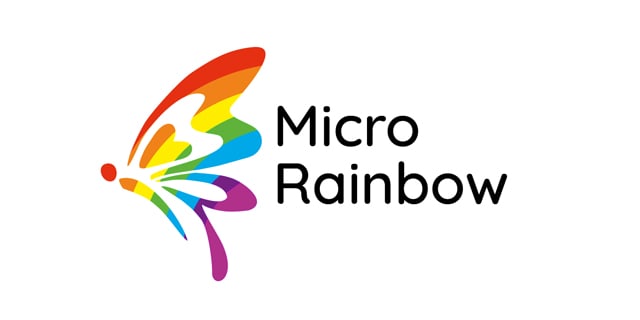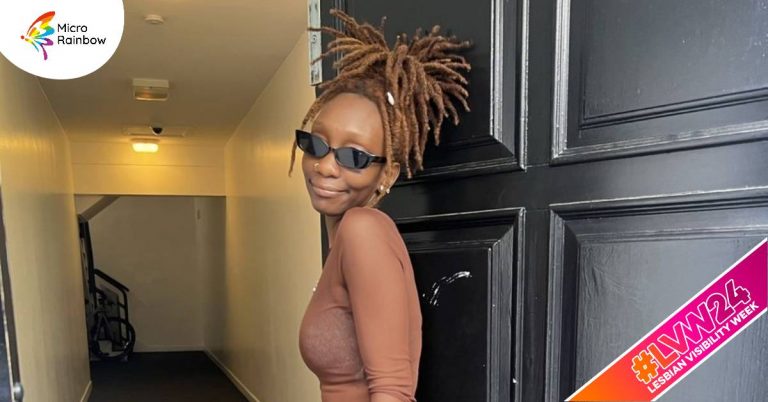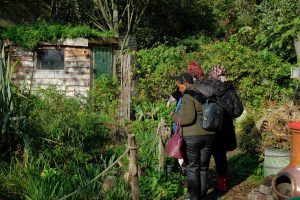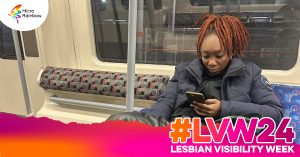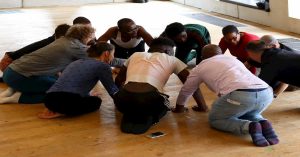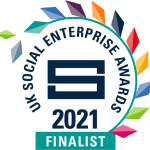Lesbian Visibility Week occurs in the fourth week of April every year. Its aim is to increase the global visibility of lesbians and to highlight the issues they face. It provides a crucial platform for recognising and celebrating the contributions and experiences of lesbians around the world. It is a time for lesbians to be seen, heard, and celebrated within the broader LGBTQI community and society at large.
For Lesbian Visibility Week, we spoke to Queen, a lesbian from Nigeria. LGBTQI people are criminalised in Nigeria, and the maximum punishment for same-sex sexual activity is 14 years’ imprisonment. At the state level, LGBTQI people can face death by stoning under Sharia law.
Queen is part of the Micro Rainbow community, attending social inclusion and moving on events. She also recently got her refugee status. In this piece, she recounts the reasons why she was forced to leave Nigeria, accepting her sexuality and the significance of global LGBT awareness events for people living in the global south.
Queen’s story
My name is Queen, I am Nigerian, and I am a lesbian. My homophobic family and the daily harassment I faced forced me to leave Nigeria. I came to the UK in March of 2023, and I claimed asylum the second day I was here.
My situation came to a head when my cousin found out I was a lesbian after overhearing me on the phone catching up with an ex. We were talking about the lesbian show Lip Service – the one that’s set in Scotland – and that was the beginning of the troubles for me. She would say “I know you’re a lesbian, you will go to hell”.
From then on, every time we had a fight – which was often – she would bring this up and threaten to report me to the police. She told a couple of people, and they would message me harassing me. I would be harassed in public as well, and it got to the point that I couldn’t bear to leave the house. I just couldn’t deal with the abuse and not living my true authentic self.
Knowing myself and queer media
I came to terms with my sexuality when I was about 14, after realising I liked this girl in my class. I went to an all-girls school, and there were masc-presenting women among the seniors there, and they were definitely lesbians. But sometimes the management would find out that they were lesbian, and then they would be expelled.
It was through watching things like Lip Service, other lesbian shows like The L Word, films like Blue is the Warmest Colour, that I started to realise that it was ok to be who I am. They helped me to understand that being a lesbian was not as terrible as Nigerian society made it seem. I rewatched Lip Service two years ago and I still love it. When I claimed asylum in the UK I wanted to go to Scotland because of Lip Service. I went to my first Pride in Perth and this was because of the show.
Pride and visibility weeks: engaging from afar
When I was in Nigeria, the only LGBT thing I knew was that June is Pride Month. Obviously, I could not celebrate in Nigeria, but I would live vicariously through other people. During Lesbian Visibility Week and Pride month, that’s all people in Nigeria can do.
I have a friend in the US, and she would send me some Pride merch. She sent a pride flag to me, a shirt, and a wristband from a Pride event. That was a way I could participate, without putting myself at risk. So even though we can’t have a pride or anything in Nigeria, we would still follow what’s happening around the world.
How can Lesbian Visibility Week help lesbians who are struggling?
These weeks can be good for raising awareness, and they do highlight issues for one week. But in Nigeria or Ghana or Uganda, it’s illegal to be LGBT all year round. On Ghana Independence Day I went to the Ghana High Commission in London to protest the anti-LGBT law. There were lots of people there, lots of people speaking and raising awareness. But it was the same in 2014 about Nigeria (when the Same Sex Marriage (Prohibition) Act 2013 came into force). People protested, but then they moved on.
Awareness is good, but they need to follow up on the awareness. In Nigeria, what the queer community needs is more safe spaces. Even if they might have to be underground. We need places where we can meet and not be at risk of arrest. We need a way of reassuring people at school that you can be who you are. You don’t have to change who you for anything or anyone.
How you can help
Spread visibility of Lesbian Visibility Week! Honour and support the lesbians in your life, and support the lesbian and bisexual women in the Micro Rainbow community by becoming an ally today.
